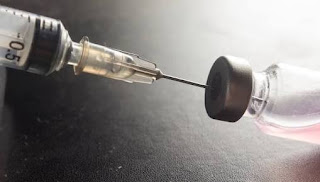Vaccines work by imitating an infection and setting up a memory B-cell response in advance of an actual infection. In HIV infection, the body mounts a very strong antibody response in the first few weeks that partially works, reducing the viral load from millions to thousands. However it does not control viral replication any further or eliminate HIV infection, and eventually weakens so that the viral load increases again
An effective HIV vaccine may be a short step away, scientists have overcome a major stumbling block hindering its development. The inability to generate immune cells that stay in circulation long enough to stop the virus from spreading is a big problem in providing cure for HIV.
The problem can be solved by unblocking a process linked to an HIV protein that was preventing the production of antibody-generating B-cells from the immune system. For a vaccine to work, its effects need to be long lasting, improving B-cell responses to an HIV vaccine is the key to HIV cure. The new method produced desired immune system responses that lasted more than a year in the laboratory experiment.
Producing vaccines that stimulate long-lasting B-cell responses against HIV is the solution to HIV treatment. B-cells need time to make highly effective neutralising antibodies, but in previous studies B-cell responses were so short lived, they disappeared before they had the time to make all the changes necessary to kill HIV.


